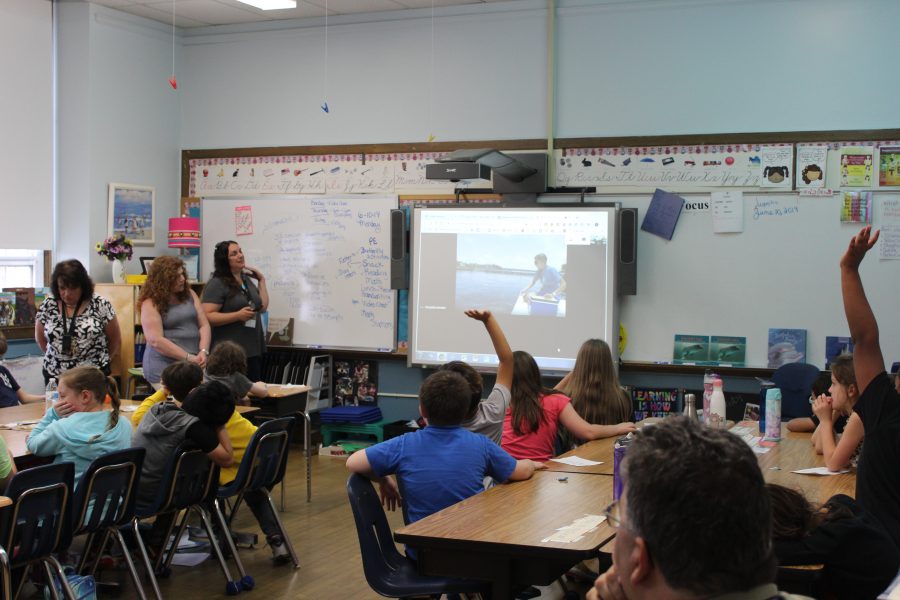Lakeview Third Graders Talk to Dolphin from Classroom

Lakeview third graders, along with their teachers Ms. Terri DiMicco and Ms. Danielle Romano and teaching assistant Angela Pace, may have taken the most memorable field trip of their lives without even leaving the classroom. With support from a grant provided by the Mahopac Special Education Parent Teacher Organization (SEPTO), the class participated in a virtual field trip to the Dolphin Research Center in Grassy Key, Florida.
Located on an island in the middle of the Florida Keys, the research center’s marine mammal trainer, Noelle Belden, and dolphin “Delta” spoke with the class “live” via video conference in a lively exchange filled with unusual facts and a question/answer exchange. Delta was an active part of the dialogue and would answer questions by nodding “yes,” “no,” and even high fives. Some interesting anecdotes about dolphin life discussed included:
Dolphins remain conscious, even
when they are sleeping. This is because their breathing is not automatic, it is consciously controlled. Dolphins only allow one half of their brains to sleep at a time; the other half stays alert to enable the dolphin to continue breathing and look out for possible danger.
Dolphins can see with sound, they use their “clicks” which travel long distances and bounce off of objects.
This is how they get a sense of where they are and where they are going.
Dolphins do not drink water. Their main food (fish and squid) contains large amounts of water.
Because they are always in water they also do not get dehydrated.
The “trip” fell on World Ocean Day, a day devoted to a global celebration of the ocean, June 8. In preparation for the “trip” the students studied the bottlenose dolphin and read Winter’s Tale by Juliana Hatkoff, which inspired the movie Dolphin Tale. The story emphasizes the importance of water pollution which was instilled in by Belden to the students. “Think about what you can do every day to make sure dolphins have a healthy ocean. Let’s remember to reduce, reuse, and recycle. A big part of what we can do is to stop using plastic bags. Plastic in the ocean is polluting and dangerous,” said Belden.
The visual and audio “field trip” components were facilitated by John Ressanovich, senior facilitator for instructional technology at Southern Westchester BOCES. As the students were exchanging with the dolphin and trainer, Ms. Romano would recap highlights on the white board for students.
“As teachers…we were very excited to make this study come to life for our students. We’re so impressed with their questions and enthusiasm,” said DiMicco.
